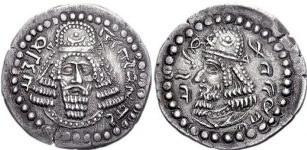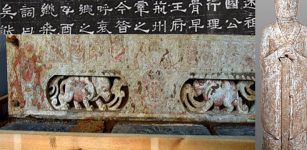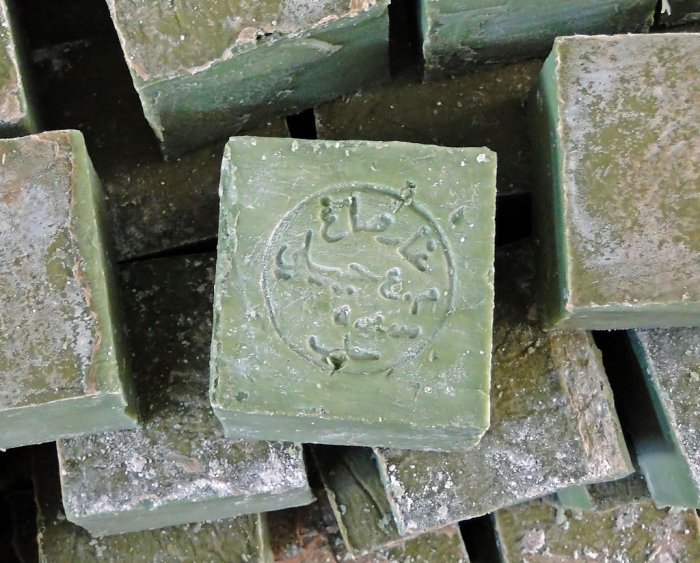Soap Was Invented In 2800 B.C By Babylonians
AncientPages.com - The first evidence of the use of soap can be traced to around 2800 B.C. Soap was invented by Babylonians and also used in Mesopotamia, ancient Egypt, ancient Greece and by the Romans.
However, in ancient times soap was not used for personal hygiene. Instead it was used cleaning cooking utensils and medicine purposes, such as for example treatment of skin diseases.
Ancient Babylonians discovered that by mixing animal fats with wood ash and water they could create a cleansing substance.
Originating from the Syrian city of Aleppo, the Aleppo soap is widely considered to be the first soap ever made. It quickly became very popular across the Middle East and far beyond.
The ancient city of Aleppo thrived on trade for thousands of years, and was famous for being the endpoint of the famous Silk Road that bridged East and the West world before the advancement of sea trade routes in the “Age of Sail”.
One of the most important trade items of the city of Aleppo was the unique soap that was made by the generations of merchant families and manufacturers for thousands of years
It was made from mixing oil from laurel (bay) trees with olive oil and soda. Formula and manufacturing process for this highly prized soap did not change over time and is still today produced in its original form.
People from all around the world who visited Aleppo quickly realized the value of the soap and it was first introduced to Europe by the Crusaders in the 11th Century.
Unfortunately, the exact origin of the Aleppo soap is lost in time, and even though there is hundreds of tales and legends about its creation, modern historians cannot confirm any one. The earliest written mentions of this soap come from the 8th century AD. When the Aleppo soap was brought to Europe people started to produce their own variations of the soap.
See also:
Oldest Evidence Of Beer Was Found On A Sumerian Tablet In Mesopotamia
First Bathrooms Appeared Around 8,000 B.C In Scotland
Ancient Egyptians Invented Toothpaste
The Castile Soap was an early European high quality soap that became popular. The Spanish city had an abundance of olive oil, crucial ingredient that was used in the production soap.
Unlike the Aleppo soap, the Castille soap did not require the use of laurel oil that short in supply, Castille’s easy access to olive oil enabled creation of pure white soap that was very mild and effective. Castile soap became one of the best natural and bio-degradable soaps that can be manufactured by hand.
The soap was perfect for washing body, laundry, hair. It could be easily and safely used by children.
Copyright © AncientPages.com All rights reserved. This material may not be published, broadcast, rewritten or redistributed in whole or part without the express written permission of AncientPages.com
More From Ancient Pages
-
 Great Flood Myth Told By Klallam People Of Washington’s Olympic Peninsula – Confirmed
Archaeology | May 17, 2019
Great Flood Myth Told By Klallam People Of Washington’s Olympic Peninsula – Confirmed
Archaeology | May 17, 2019 -
 The Rise And Fall Of The Sasanian Empire
Civilizations | Jun 19, 2019
The Rise And Fall Of The Sasanian Empire
Civilizations | Jun 19, 2019 -
 Mysterious Runes Deciphered By School Children In Sweden Shed New Light On The Kensington Stone
Artifacts | Oct 4, 2019
Mysterious Runes Deciphered By School Children In Sweden Shed New Light On The Kensington Stone
Artifacts | Oct 4, 2019 -
 The Perplexing Story Of The Seven Continents And The Seven Mysterious Races – Distant Past – Part 1
Ancient Mysteries | May 9, 2022
The Perplexing Story Of The Seven Continents And The Seven Mysterious Races – Distant Past – Part 1
Ancient Mysteries | May 9, 2022 -
 2,000 Year-Old Books Written By Bian Que The Divine Healer Unearthed
Artifacts | May 13, 2014
2,000 Year-Old Books Written By Bian Que The Divine Healer Unearthed
Artifacts | May 13, 2014 -
 Sacred And Mysterious Lake Titicaca Still Holds Many Ancient Secrets
Ancient Mysteries | Jul 13, 2017
Sacred And Mysterious Lake Titicaca Still Holds Many Ancient Secrets
Ancient Mysteries | Jul 13, 2017 -
 Civita di Bagnoregio – Magnificent 2,500-Year-Old Etruscan City In The Sky Is Struggling To Survive
Featured Stories | Jun 23, 2021
Civita di Bagnoregio – Magnificent 2,500-Year-Old Etruscan City In The Sky Is Struggling To Survive
Featured Stories | Jun 23, 2021 -
 Food Insecurity Led To An International Conflict 2,000 Years Ago
Archaeology | Sep 22, 2022
Food Insecurity Led To An International Conflict 2,000 Years Ago
Archaeology | Sep 22, 2022 -
 The Prophecy Of The Rainbow Warriors And Future Of Planet Earth
Featured Stories | Aug 29, 2018
The Prophecy Of The Rainbow Warriors And Future Of Planet Earth
Featured Stories | Aug 29, 2018 -
 Ancient Greeks Built Sacred Temples On Earthquake Sites To Gain Spiritual Power
Archaeology | Sep 19, 2017
Ancient Greeks Built Sacred Temples On Earthquake Sites To Gain Spiritual Power
Archaeology | Sep 19, 2017 -
 2,500-Year-Old Scythian Warrior Found In Untouched Grave In Siberian ‘Valley Of The Kings’
Archaeology | Jan 7, 2020
2,500-Year-Old Scythian Warrior Found In Untouched Grave In Siberian ‘Valley Of The Kings’
Archaeology | Jan 7, 2020 -
 Airmid: Irish Goddess Of Healing And Herbs And One Of The Tuatha Dé Danann
Celtic Mythology | Feb 2, 2018
Airmid: Irish Goddess Of Healing And Herbs And One Of The Tuatha Dé Danann
Celtic Mythology | Feb 2, 2018 -
 1,500-Year-Old Tomb With Patterns Linked To Zoroastrianism And Buddhism Unearthed In C. China
Archaeology | Jan 19, 2021
1,500-Year-Old Tomb With Patterns Linked To Zoroastrianism And Buddhism Unearthed In C. China
Archaeology | Jan 19, 2021 -
 Baku’s Mysterious Maiden Tower – Legend Of The Daughter Of Fire Who Saved The Sacred Temple May Be True
Featured Stories | Jul 5, 2021
Baku’s Mysterious Maiden Tower – Legend Of The Daughter Of Fire Who Saved The Sacred Temple May Be True
Featured Stories | Jul 5, 2021 -
 Mysterious Sanctioned Ancient Temple In Jerusalem Create Some Biblical ‘Problems’
Archaeology | Mar 5, 2020
Mysterious Sanctioned Ancient Temple In Jerusalem Create Some Biblical ‘Problems’
Archaeology | Mar 5, 2020 -
 Mystery Of Nebra Sky Disk: New Analysis Shows Surprising Results
Artifacts | Sep 4, 2020
Mystery Of Nebra Sky Disk: New Analysis Shows Surprising Results
Artifacts | Sep 4, 2020 -
 Why Do Native Americans Often Wear Long Hair?
Ancient History Facts | Sep 19, 2019
Why Do Native Americans Often Wear Long Hair?
Ancient History Facts | Sep 19, 2019 -
 Ancient Egyptian Guide To Rostau – The Underworld Of God Osiris May Be World’s Oldest Illustrated Book
Archaeology | Jan 2, 2020
Ancient Egyptian Guide To Rostau – The Underworld Of God Osiris May Be World’s Oldest Illustrated Book
Archaeology | Jan 2, 2020 -
 Submerged Ancient Bridge Found In Genovesa Cave Reveals Humans Settled In Mediterranean Much Earlier Than Previously Thought
Archaeology | Sep 2, 2024
Submerged Ancient Bridge Found In Genovesa Cave Reveals Humans Settled In Mediterranean Much Earlier Than Previously Thought
Archaeology | Sep 2, 2024 -
 5 Most Common Misunderstandings About Evolution
Evolution | Jun 5, 2023
5 Most Common Misunderstandings About Evolution
Evolution | Jun 5, 2023


